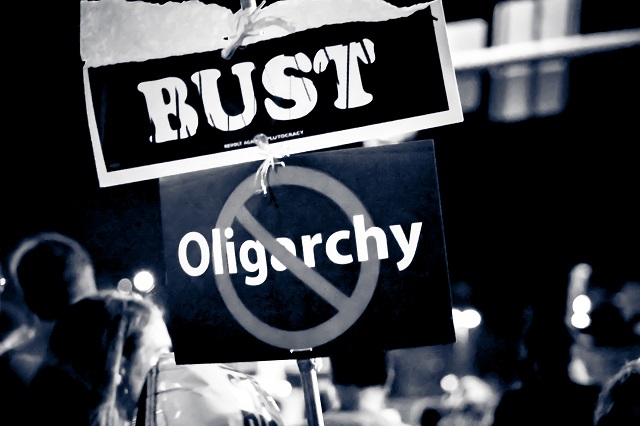
Part of the Series
Beyond the Sound Bites: Election 2016
Support justice-driven, accurate and transparent news — make a quick donation to Truthout today!
This November the majority of Americans did not vote for either one of the two least liked presidential candidates in US history.
It’s no wonder. In the last days of election, American voters were left with an unappealing choice:
On the one hand, they could vote for a candidate who has sold over $165 billion worth of weapons to nations that had contributed to the Clinton foundation, is one of the leading advocates for replacing governments (including democracies) that do not support US corporate interests, was the main architect for the repressive anti-democratic coup against a center-left president in Honduras, pursued aggressive action against whistleblowers warning Americans of the growing power of its government’s surveillance over them and supports “free trade” policies that hand over democratic power to international corporations.
On the other hand, they could vote for a candidate spouting xenophobic threats and economic promises who inherited a substantial amount of money, has gone bankrupt multiple times, is on record as having lost more than a billion dollars in one year alone, has a track record of destroying almost all communities in which he has large-scale investments, was charged and settled with the government for racist economic practices, used undocumented labor to undercut wages, has admitted to not paying US income taxes because “it was smart,” started a criminally fraudulent university and misused his charitable funds for personal gain.
Such a choice reveals the fundamental danger the country is in. Indeed, if anything, their very names on the ballot highlight how desperately the nation needs to be politically and economically saved.
Even faced with this grim choice, however, many Americans expressed the view that one of these two candidates could be a savior of the US.
Can Americans stop looking to leaders to save them? Can they find the means to save themselves and the nation from these economic and political elites?
Beyond Saviors
The palatable desire for saviors is understandable but also profoundly threatening. It symbolizes an authoritarian mentality of relying on a great leader for political and economic progress. It revolves around destroying “enemy threats” and reifying elites as almost divine figures of salvation. Trump and Clinton, each in their own way, reflect this savior complex infecting so much of the nation.
It was precisely this mentality that Bernie Sanders and third-party candidates were seeking to cure. Throughout his progressive challenge to Clinton in the Democratic primaries, Sanders patently refused to be deified. He did not want the Obama mantle of “Hope” or the self-laudatory slogan of “I’m With Her.” Instead, he stressed how genuine progress comes from popular mobilization. He declared repeatedly that what was needed was a “political revolution” as:
Real change never takes place from the top down, or in the living rooms of wealthy campaign contributors. It always occurs from the bottom on up — when tens of millions of people say ‘enough is enough’ and become engaged in the fight for justice. That’s what the political revolution we helped start is all about. That’s why the political revolution must continue.
At the heart of this message is the idea that the country’s political culture needs to mature beyond the desire for saviors. Even before the financial crisis and its decade-long fallout, the political parties represented institutions less than they did proxy parents for the American people. Yet, if the country has any chance of getting better, Americans will have to grow up and realize that if they want to be saved, they must first save themselves.
Can the People Save the US?
As the system falls apart, the nation once again seeks out a charismatic leader who can help citizens feel less powerless in the face of this seemingly unstoppable decline. The real task, though, is how the people can seek to take the power back for themselves.
Crucially, this requires changing how we as a nation collectively think about progress. Specifically, it means taking more seriously the power of people to influence and ultimately weaken the power of these “savior” elites.
This month’s election revealed the need for people in the US to dismantle the current system of elite rule. This requires resisting the temptation to look for a progressive savior and instead strengthening our popular power. In the wake of this shocking election, the real question is whether the people can save the country from itself.
Media that fights fascism
Truthout is funded almost entirely by readers — that’s why we can speak truth to power and cut against the mainstream narrative. But independent journalists at Truthout face mounting political repression under Trump.
We rely on your support to survive McCarthyist censorship. Please make a tax-deductible one-time or monthly donation.